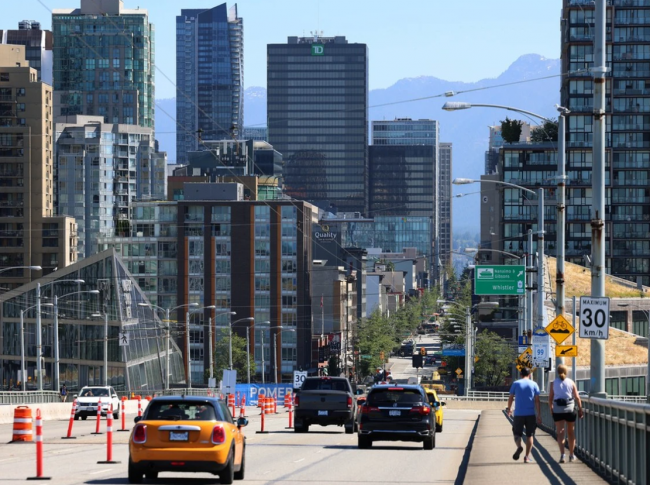Articles Menu

July 31, 2024
Last week, as Valemount was opening its homes to thousands of evacuees fleeing the Jasper wildfires, Vancouver was slamming the door on climate progress. In a 6-to-5 vote, city council abruptly reversed the city’s long-standing bylaw preventing natural gas heating in new homes.
Barely three years after a heat dome killed 117 people in Vancouver alone, this ambush of our public right to weigh in on municipal policy, and our right to a healthy environment, betrays our civic values and health.
The way this mayor and council forced through their decision to revert to older and less efficient technology stands in stark contrast to the 2020 edict. As a surprise, after a last-minute amendment following the city’s annual report on climate action progress — which ironically described our failure to meet our climate targets — there was no opportunity for the public or industry experts to intervene. Real-time engagement, which would have made it politically challenging to adopt the motion, was cut off. This is not how decision-makers tasked with representing their constituents should behave.
Trust in public institutions to act in our best interests is a determinant of health. Research tells us more than half of youth globally report mental health concerns including sadness, anxiety, anger and helplessness due to climate change, and three-quarters say “the future is frightening.” What youth find most distressing, however, are not the actual effects of climate change, but their belief that adults and government are not doing enough to tackle them. Unfortunately, this vote appears to prove them right. Not only does this recent vote upend significant progress city staff and industry have already made on clean buildings and climate change, but it also undermines democracy and trust in government.
Access to safe and affordable housing is similarly a determinant of health. Yet unlike talking points the mayor and some councillors used — which closely echo those from the fossil-fuel industry — analyses by credible bodies such as B.C. Hydro, B.C. Housing and city staff indicate that restoring fossil gas to new homes will do nothing to improve affordability for homebuyers. On the flip side, the Homebuilders Association of Vancouver praised the move in the mayor’s press release, possibly because it benefits wealthy developers while passing along higher future energy costs to homeowners.
The mayor’s office also argues: “As climate change leads to more severe weather events, having multiple energy options is crucial.” Unfortunately, if an atmospheric river interrupts the hydro, gas furnaces, which rely on electricity to operate safely, won’t run. Gas cooking during a power outage can be even more dangerous, as range hoods necessary to clear health-harming air pollutants, and many carbon-monoxide detectors, won’t work. During heat waves, gas furnaces are likewise useless — while electric heat pumps can heat and cool with better energy efficiency, which will save lives. More investments are also needed in solar panels and battery storage systems, which improve climate resilience by powering homes if the energy grid falters — and for which B.C. Hydro this month introduced rebates of up to $10,000.
Meanwhile, the negative public health impacts of fossil fuels in homes are rising. Heating buildings generates almost 60 per cent of Vancouver’s carbon pollution, driving climate-change-induced wildfires and record-breaking temperatures that burden our health and health care system with asthma exacerbations, heat stroke and mental health issues.
As the first municipality in Canada to reverse a bylaw to build clean energy into new homes, Vancouver is no longer a climate leader — it’s a climate laggard. While city staff work on implementing this about-face into its climate response and prepare to report back by November, we must be ready to mobilize against it for our health and a livable future. This fall, our voices will not be silenced.
Dr. Melissa Lem is a Vancouver family physician, clinical assistant professor at the University of British Columbia, and president of the Canadian Association of Physicians for the Environment.
[Top photo: The view looking North from the Granville Street Bridge earlier this month PHOTO BY NICK PROCAYLO /PNG]